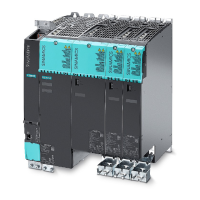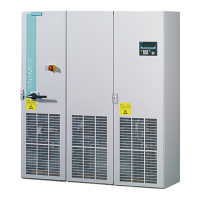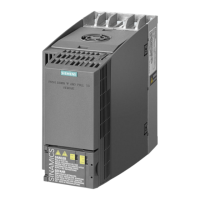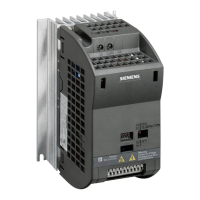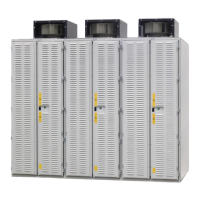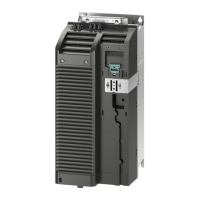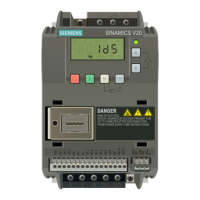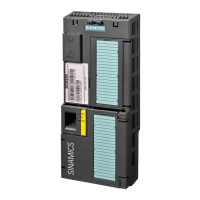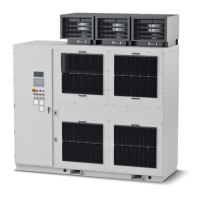Drive functions
5.4 Force control
Hydraulic Drive
System Manual, 04/2015, 6SL3097-4BA00-0BP1
159
Commissioning the force controller
To commission the force controller, the measuring functions and the function generator can
be used to determine the following parameters:
● Force controller reference frequency response
– Set p4810 = 2 (function generator operating mode = input as disturbing torque and
r4818)
– Set p4820 = 4 (function generator signal waveform = binary noise)
– Measure r0079 (CO: Total force setpoint) and r0080 (CO: Force actual value)
– Set the signal amplitude using p4824. This signal (as is the case for electric drives)
can be converted into physical unit "N". p2003 (reference force) corresponds to
100 %.
– Set the signal offset using p4826. This signal (as is the case for electric drives) can be
converted into physical unit "N". p2003 (reference force) corresponds to 100 %.
● Force controller setpoint step
– Set p4810 = 2 (function generator operating mode = input as disturbing torque and
r4818)
– Set p4820 = 1 (function generator signal waveform = square-wave)
– Measure r0079 (CO: Total force setpoint) and r0080 (CO: Force actual value)
– Set the signal amplitude using p4824. This signal (as is the case for electric drives)
can be converted into physical unit "N". p2003 (reference force) corresponds to
100 %.
– Set the signal offset using p4826. This signal (as is the case for electric drives) can be
converted into physical unit "N". p2003 (reference force) corresponds to 100 %.
The force must be limited in the following situations:
● For certain machining processes for which the "Travel to fixed stop" function must be
implemented
● For metal forming (machining using force profiles)
This compensation function is needed to compensate the effects of stiction occurring when
the traversing direction changes (reduction of contour errors, see e.g. circularity test). There
are 2 types of stiction compensation:
● Stiction compensation using a force controller (see "Stiction compensation using the force
controller (Page 162)")
● Stiction compensation with voltage pulse / voltage ramp (see "Stiction compensation with
voltage pulse / voltage ramp (Page 165)")
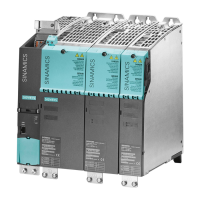
